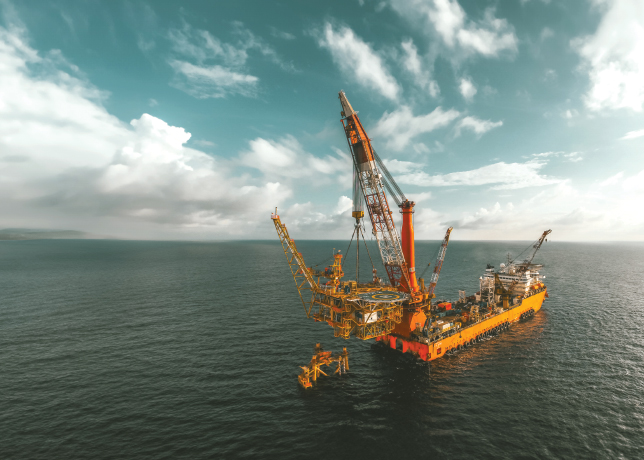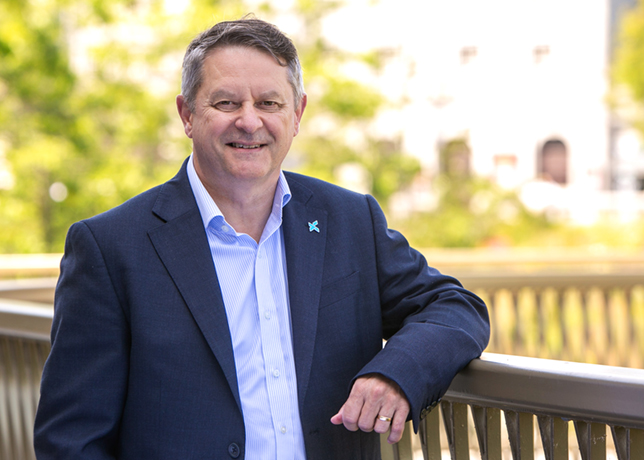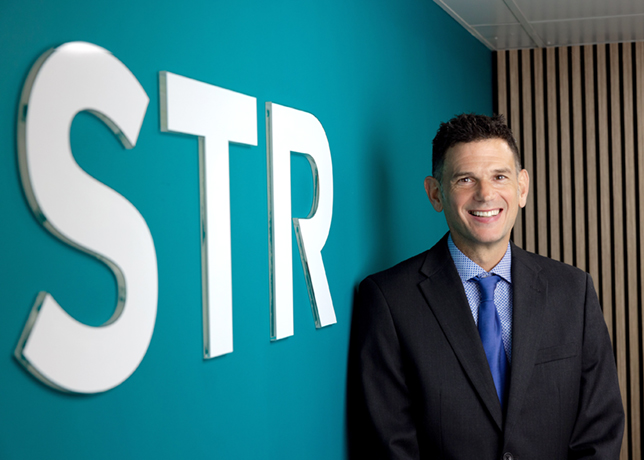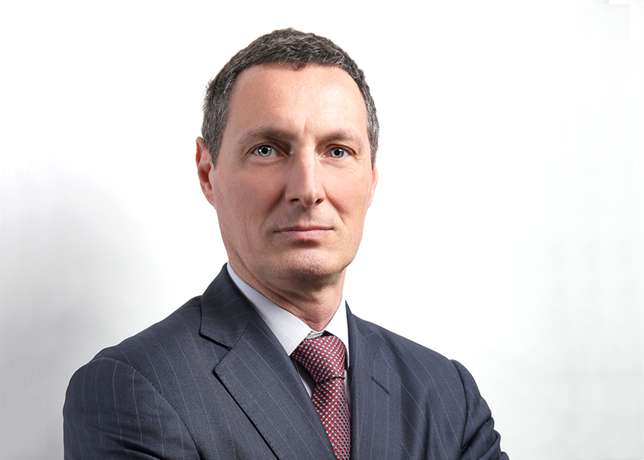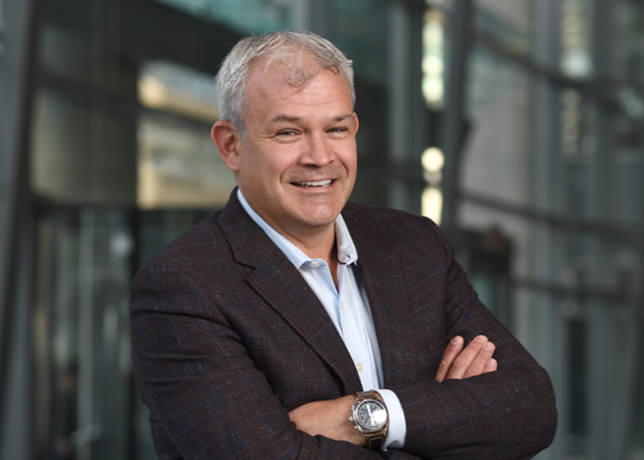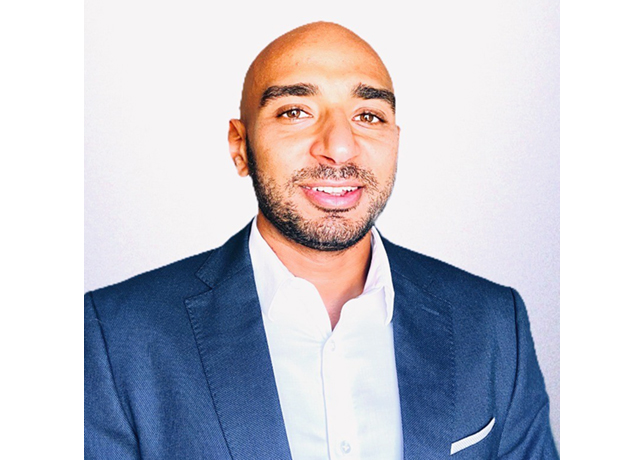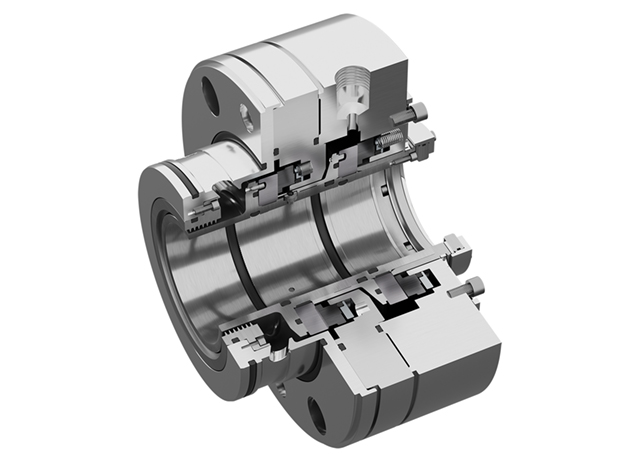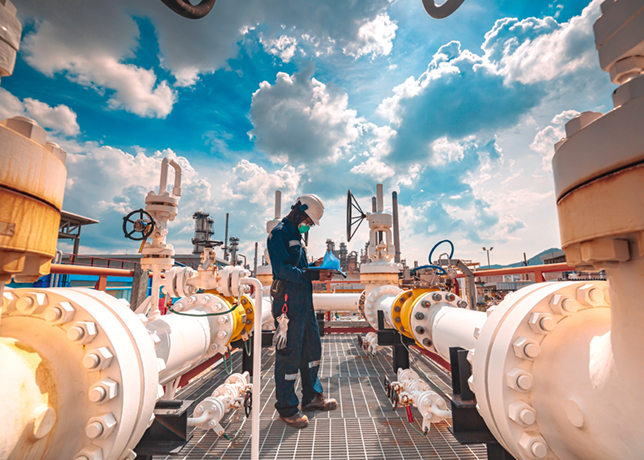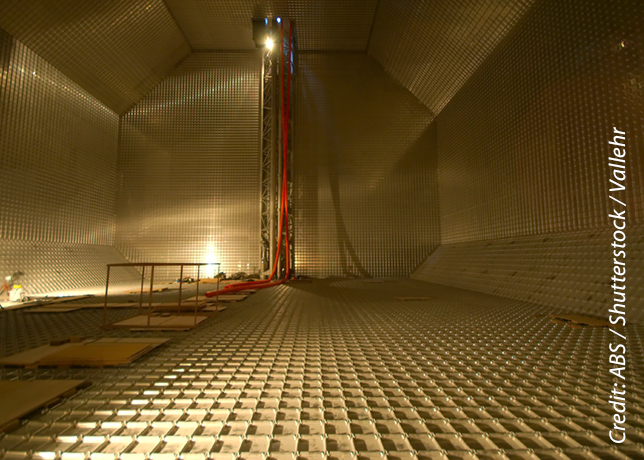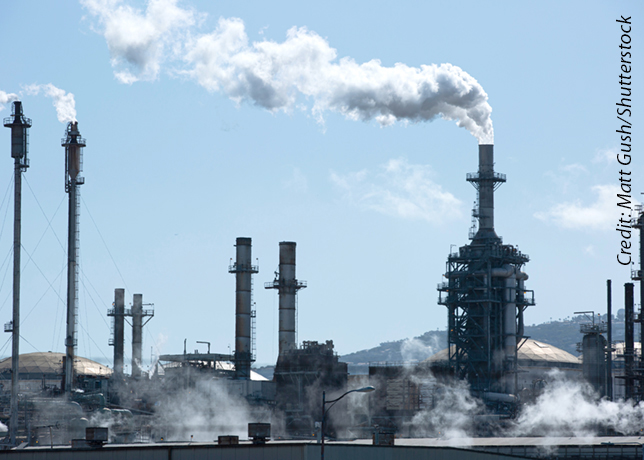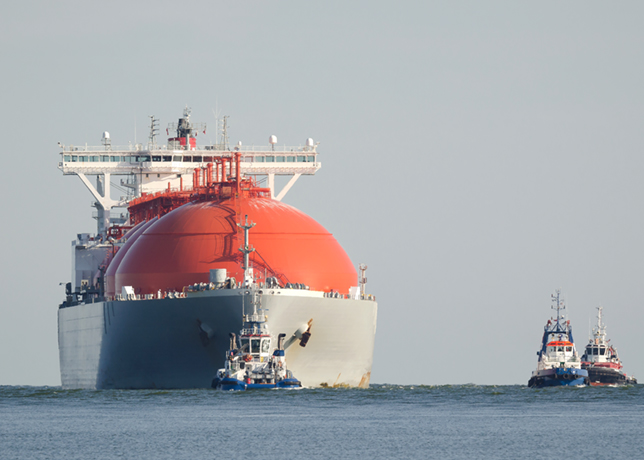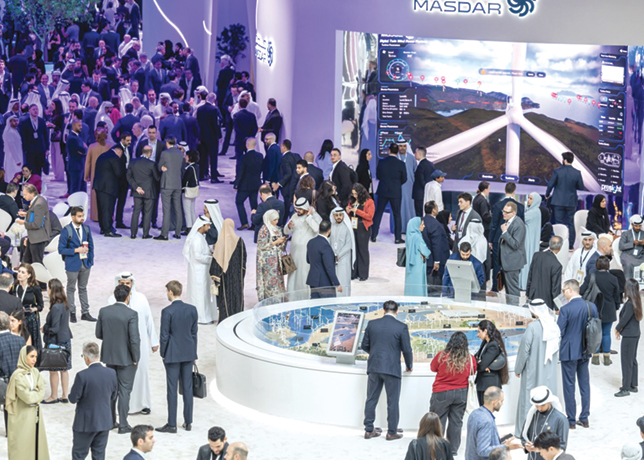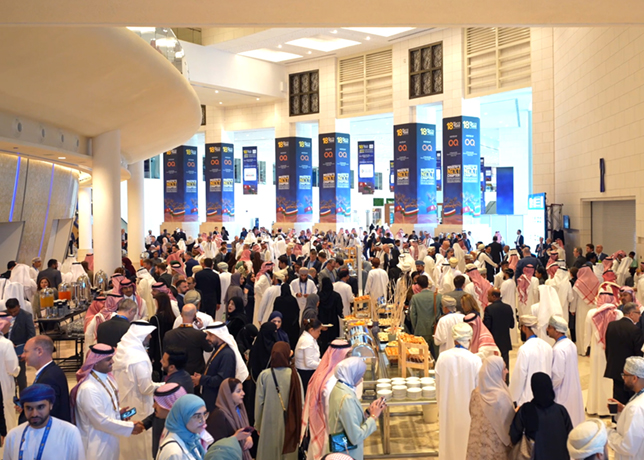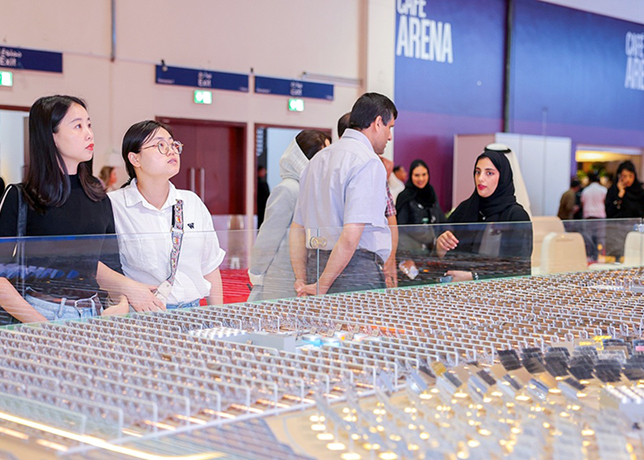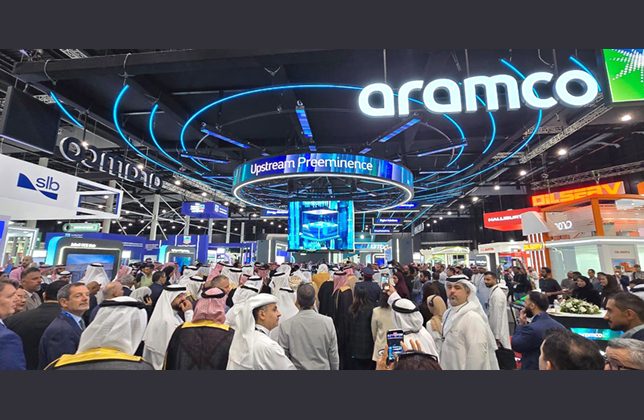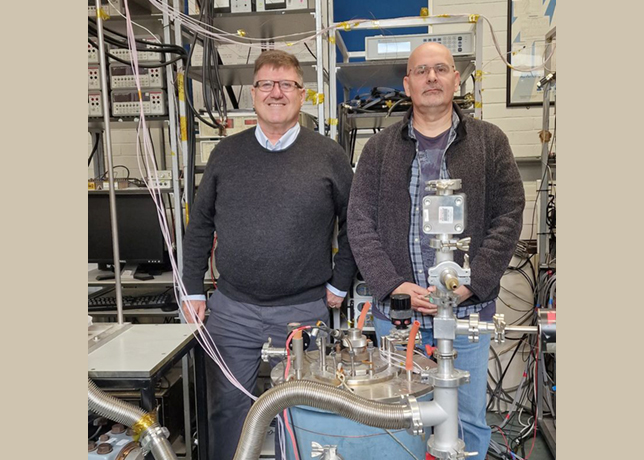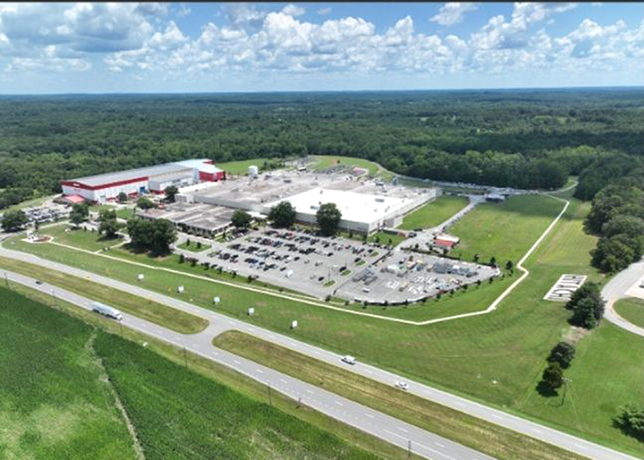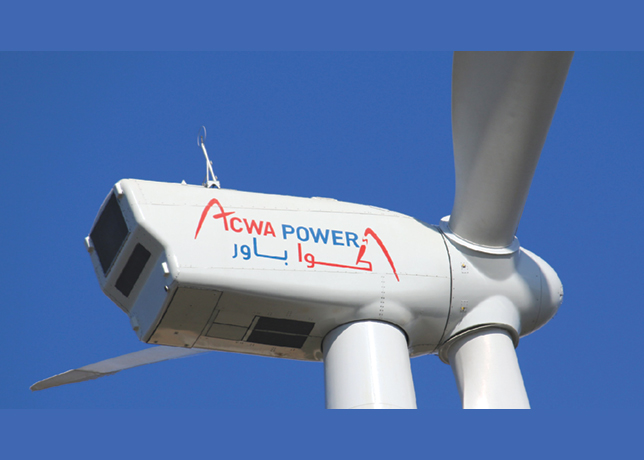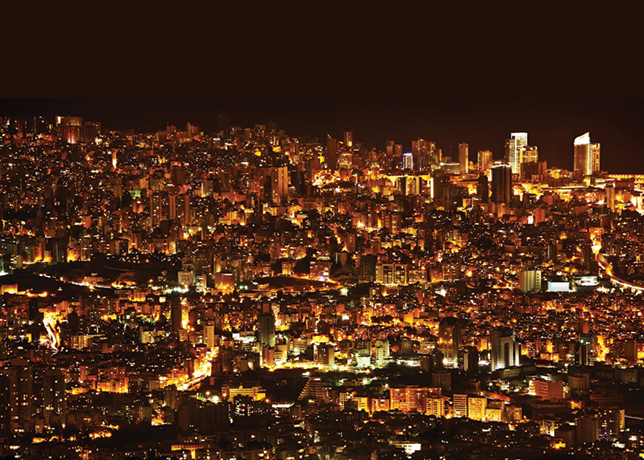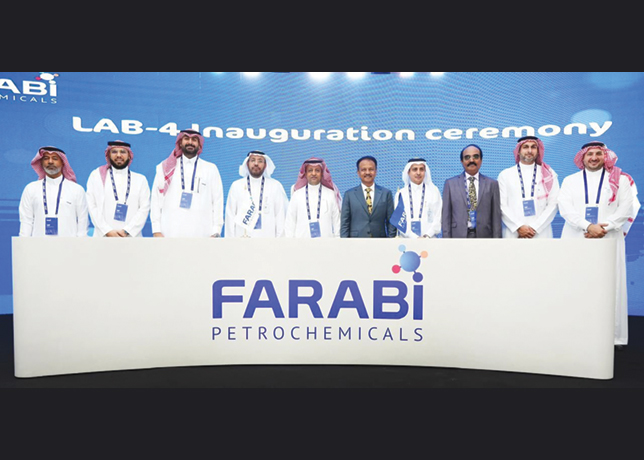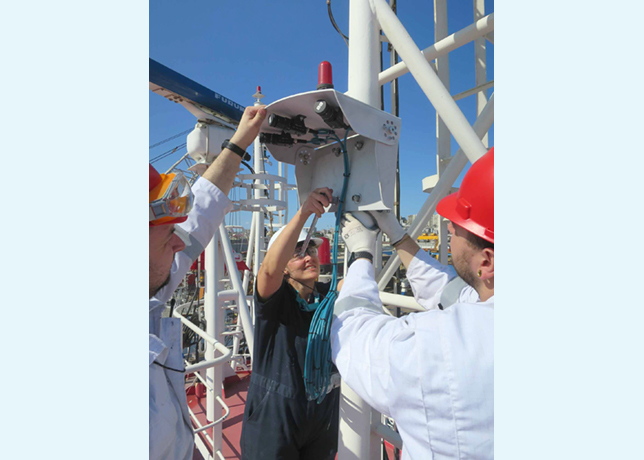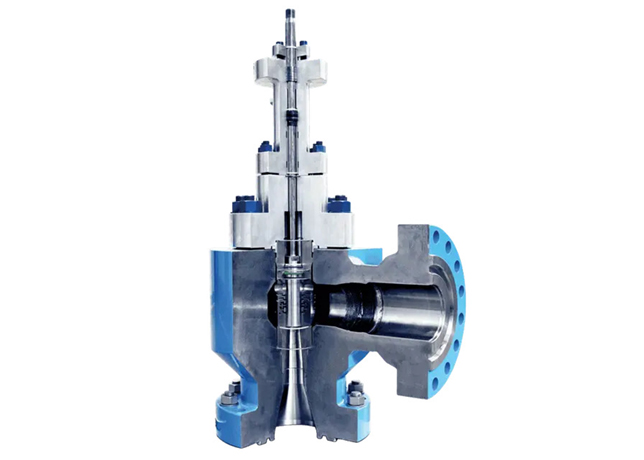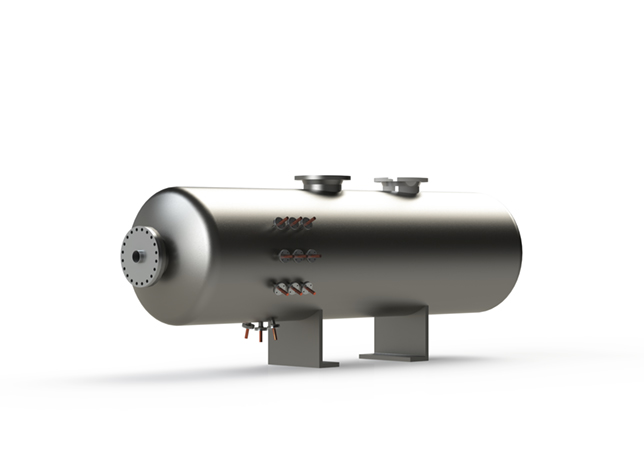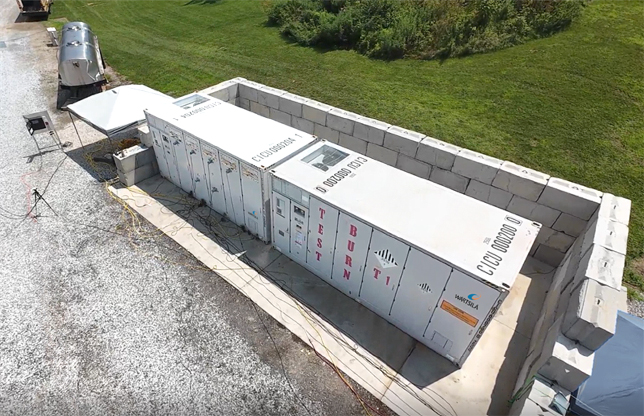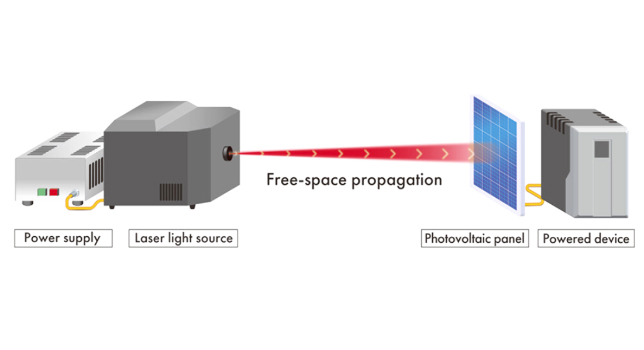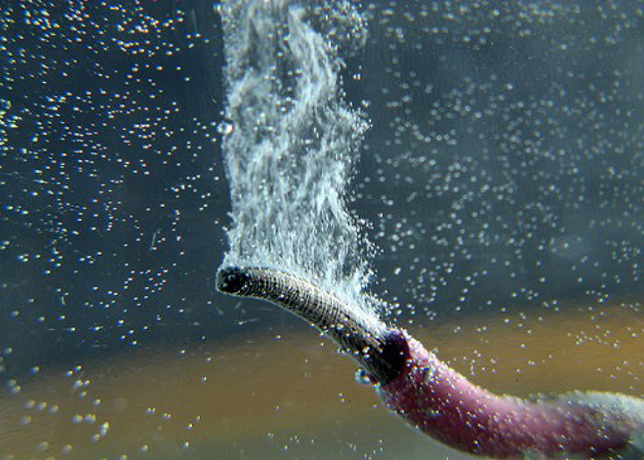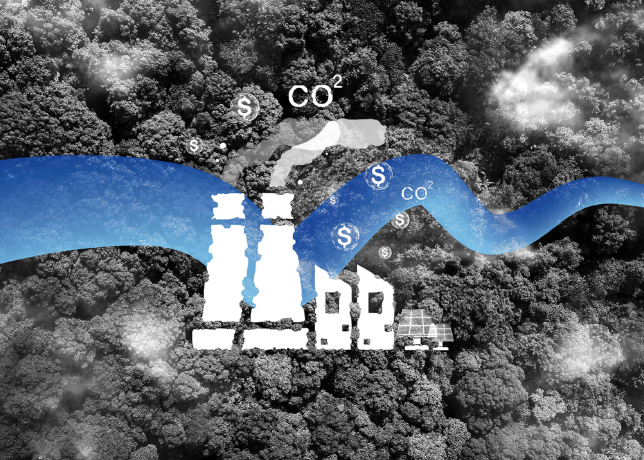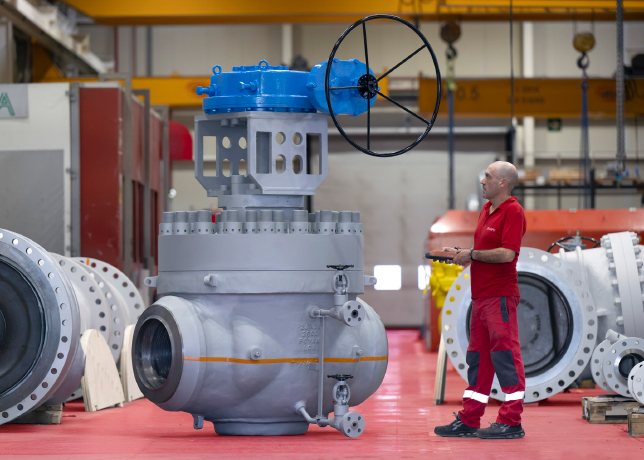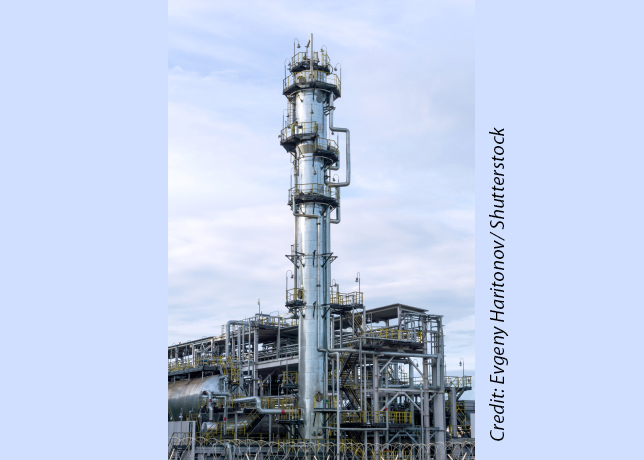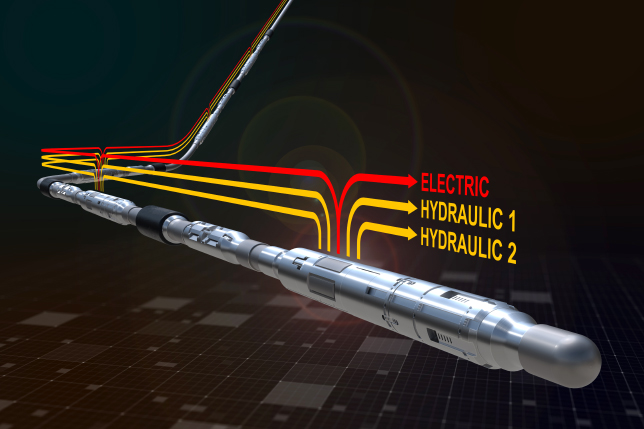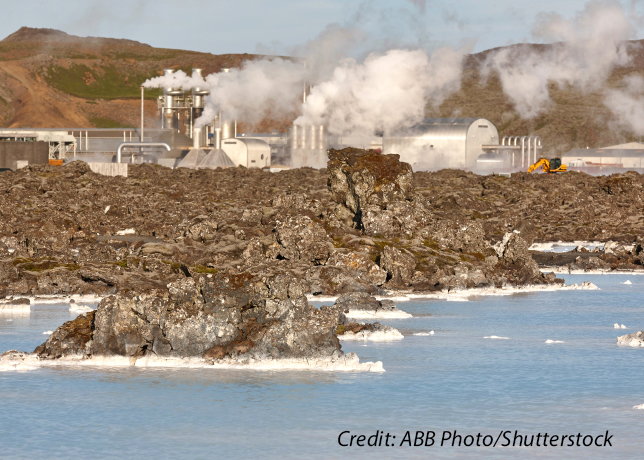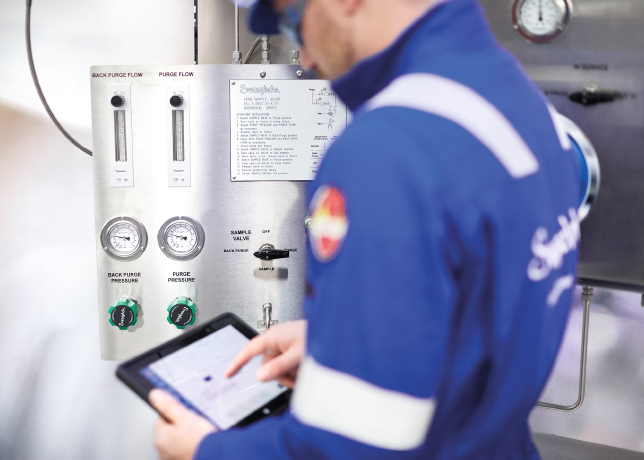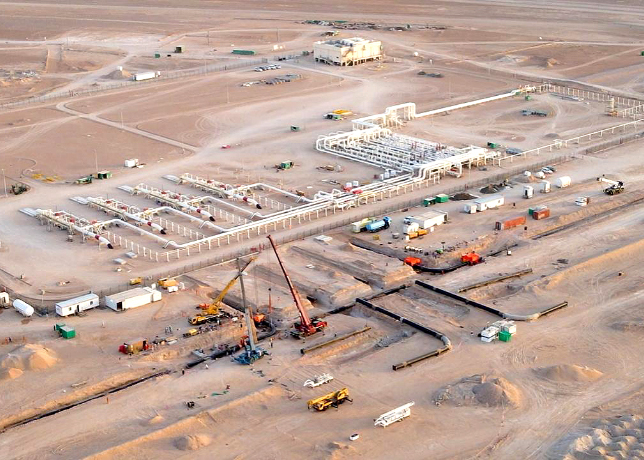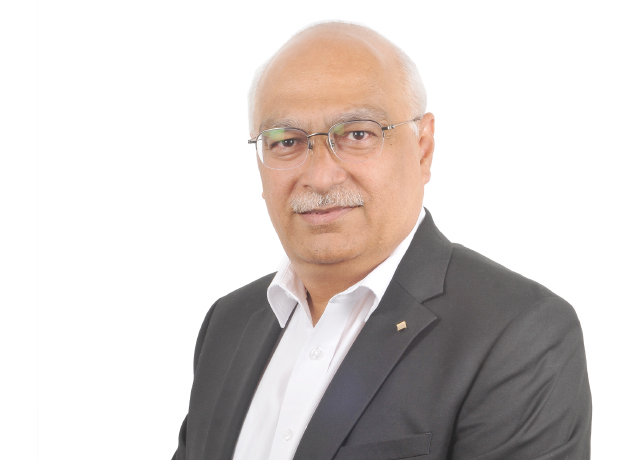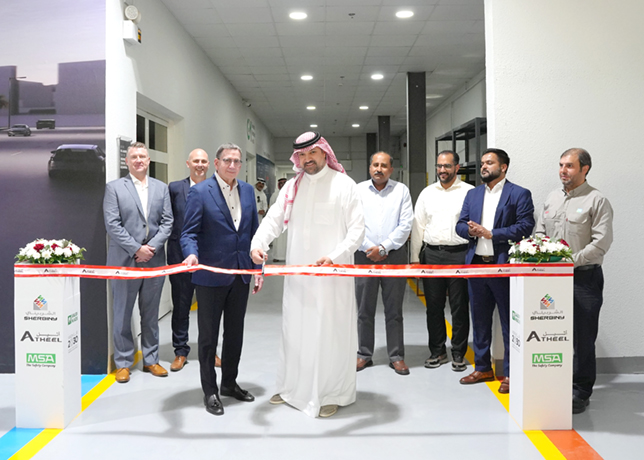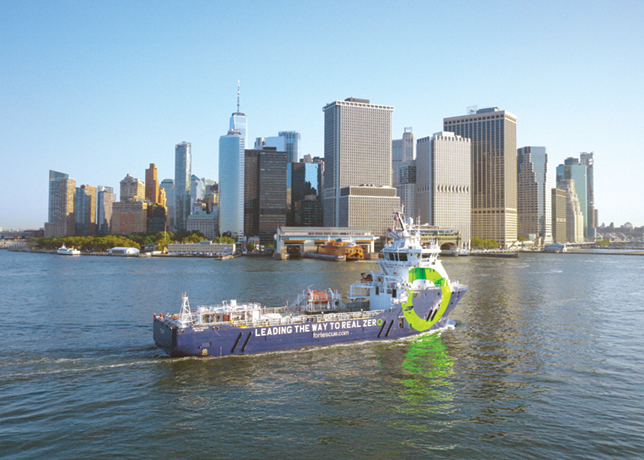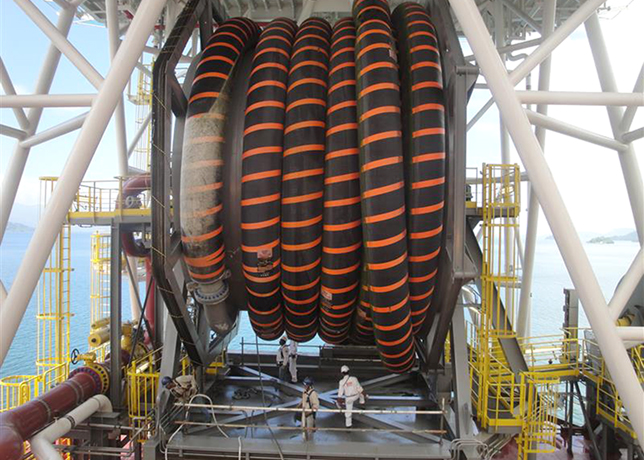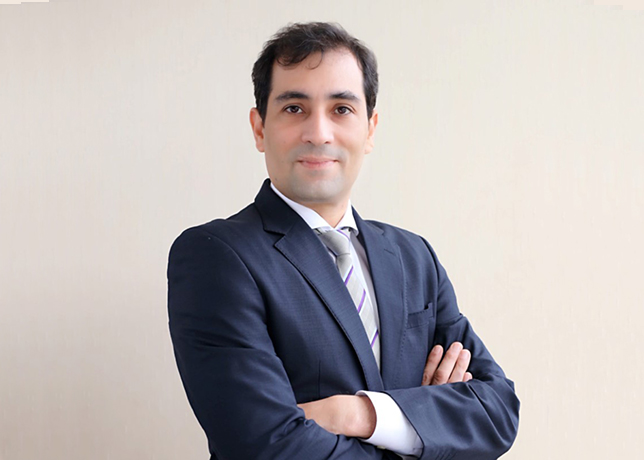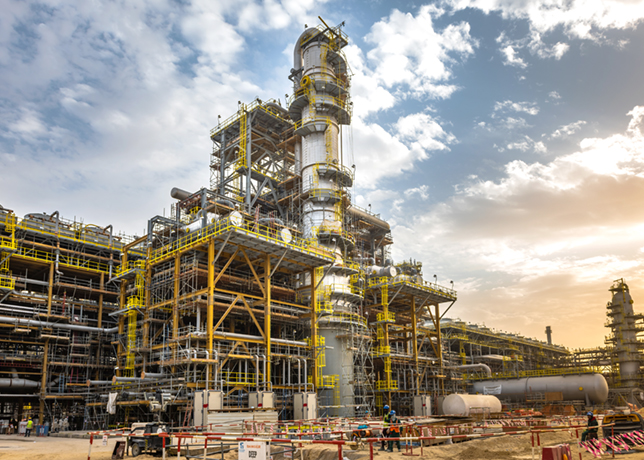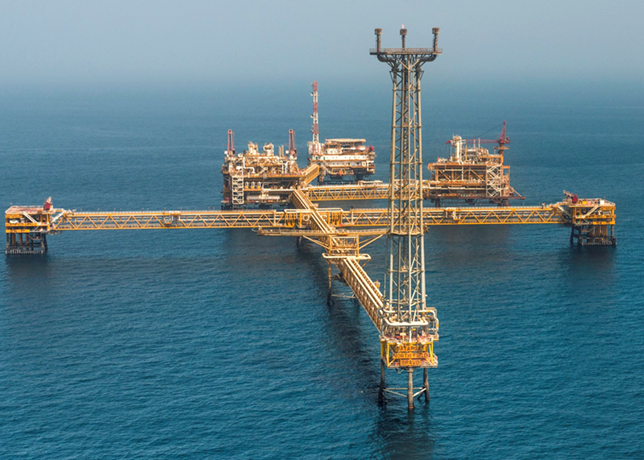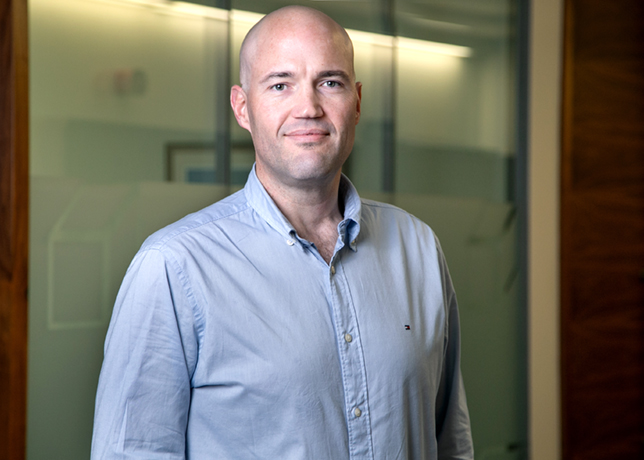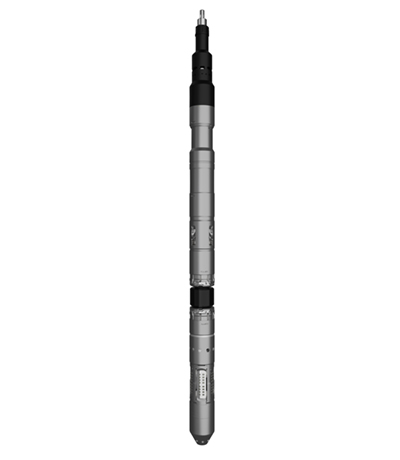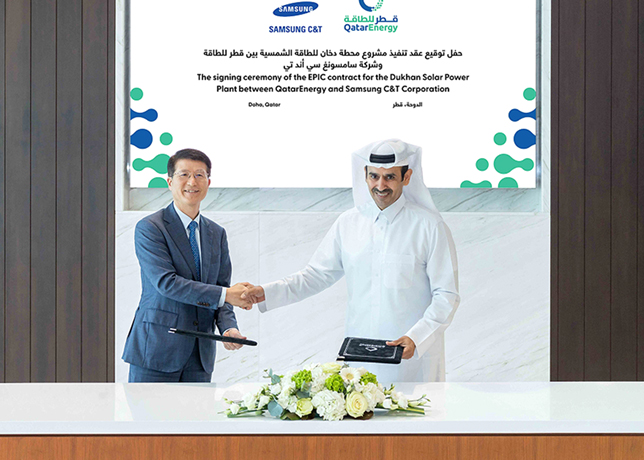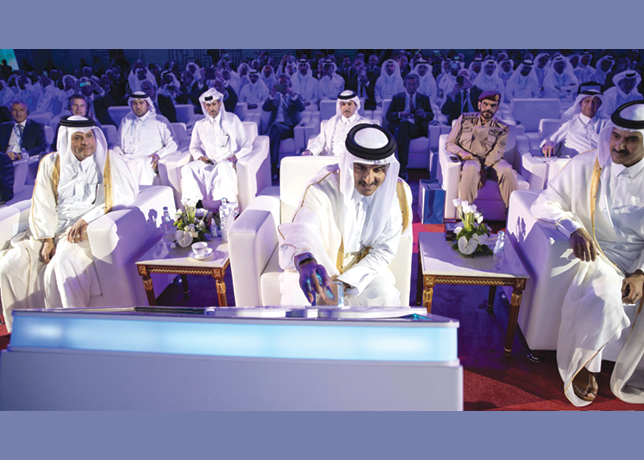

Saudi Aramco has launched major projects and made investments in both the upstream and downstream sector to maintain its leadership position in the oil and gas industry.
Saudi Arabia will invest around $70 billion in its oil and gas sector in the next five years, Minister of Petroleum and Mineral Resources Ali Al Naimi says.
Reaffirming a pledge to keep world markets supplied, Naimi said the kingdom was committed to keeping a spare oil output capacity cushion of 1.5-2.0 million barrels per day at all times.
Crude output capacity will be boosted to 12.5 million bpd by 2009 through an investment of around $18 billion, the minister said.
Naimi said Saudi Aramco has discovered a new natural gasfield south of Al Ghawar field in the Eastern Province.
“Kassab-1 field has a production capacity of 16.2 million cubic feet per day and it is located at 50 km south of Al Ghawar oilfield,” Naimi said.
Saudi Arabia, the world’s top oil exporter, has a $50 billion investment scheme in place to boost refining capacity at home and abroad to around 6.4 million bpd from some four million bpd now.
Saudi Aramco President and CEO Abdallah S Jum’ah said Saudi Aramco currently has half a dozen major crude oil increments at various stages of development, with a total production capacity of some three million barrels per day, he said.
“In other words, in the next five to six years, we will be adding production capacity. Some of that capacity will offset natural decline, while the remainder will serve to expand our maximum sustained production capability, which by the end of 2009 will reach 12 million barrels per day,” he said.
“At the same time, in keeping with Saudi Arabia’s current oil policy and as a commitment to world oil markets, we will maintain our surplus production capacity of one-and-a-half to two million barrels per day, even as our actual production grows.
“This surplus capability is expensive to develop and maintain, but over the years it has repeatedly proven its worth, and so we bear this cost to promote market stability and continued global economic development,” Jum’ah told Asia’s annual conference on Oil and Gas.
Saudi Arabia currently has proved oil reserves of about 260 billion barrels, roughly a quarter of the world’s total, and “conservatively” estimates it has recoverable reserves of another 200 billion barrels, Jum’ah said.
“At Aramco’s current production, it is centuries worth of oil,” Jum’ah said.
Saudi Aramco is setting the world's oil industry the challenge to find a trillion barrels more oil reserves over the next 25 years, Jum'ah also told a conference.
"I would like to challenge our explorationists to find enough new resources for us to add one trillion barrels to world reserves over the next 25 years," he said.
Meanwhile, The Custodian of the Two Holy Mosques King Abdullah bin Abdulaziz was quoted as saying high oil prices were unjustified because global markets were well supplied.
The king also told the Asharq Al-Awsat newspaper in an interview that Saudi Arabia, the world’s top oil exporter, wanted moderate oil prices, despite the benefits it would reap from higher prices.
“The kingdom’s oil policy is based on moderate prices and despite the benefits higher oil prices bring to us, we call for moderation in oil prices,” the king told the newspaper.
“Oil production is plentiful, so I am puzzled by the fluctuations in the market and the unjustified high oil prices,” he added.
Top world exporter Saudi Arabia is set to pump around 9.2 million barrels per day (bpd) through October, buyers of the kingdom’s crude said.
Saudi Aramco sent supply allocations for October to customers and volumes were unchanged from September, sources said.
Saudi Arabia will regain its position as the biggest crude oil supplier to China once Chinese refineries are upgraded, after being overtaken by Angola earlier this year, a senior Saudi Aramco official said.
China has ramped up imports of Angolan heavy sweet crude, which suits its plants better, but Saudi Arabia will reclaim its role as the main supplier in the long term, said Ibrahim Mishari, Saudi Aramco’s vice president marketing and supply planning.
“They will import more because of proximity and lower costs,” Mishari said.
Saudi Aramco, a major fuel oil exporter to East Asia, also imported its first-ever cargoes of the residual fuel, taking a total of around 160,000 tonnes for August and September deliveries, to meet peak summer utility demand amid a depressed global market, traders said.
The state firm also said it will build a petrochemical plant at Ras Tanura in Saudi Arabia with US chemical maker Dow Chemical Co.
Saudi Aramco has announced a fresh natural gas discovery to the south of the Ghawar oilfield, following the drilling of the Zamlah-1 well.
Saudi Arabia plans to complete by June 2007 its Khursaniyah project to add 500,000 barrels per day (bpd) of Arabian Light crude, six months earlier than previously announced, state oil firm Aramco said.
A lumpsum turnkey (LSTK) contract has been awarded to Snamprogetti, a unit of Italy’s Saipem, to build a plant for separating gas and oil under the Khursaniyah development programme.
Saudi Arabia’s South Rub Al-Khali Company, or SRAK, has begun drilling for gas in the Empty Quarter in the south of the country, the Saudi Aramco said. Aramco said seven wells would be drilled over the next 28 months.
US Halliburton Co said it was awarded a multimillion-dollar oilfield services contract by Saudi Aramco for its Khurais project.
In another development, McDermott Arabia Company (MACL), a subsidiary of J Ray McDermott, SA, has been awarded two turnkey contracts by Al Khafji Joint Operations (KJO), to provide engineering, procurement, construction and installation services for KJO developments in the Arabian Gulf.
The inauguration of Saudi Aramco’s new Haradh GOSP-3 by Naimi marked a watershed achievement in the oil industry and injected new oil into world markets.
The gas-oil separation plant caps the massive Haradh-3 increment project, which is designed to produce 300,000 barrels per day of Arabian Light crude and boost Saudi Arabia’s maximum sustained capacity to 11.3 million barrels per day (bpd), while maintaining a surplus cushion of approximately 1.5 million bpd.
In downstream developments, Japan’s Sumitomo Chemical plans to expand on its $9.8 billion refinery and petrochemical project in Rabigh, Saudi Arabia, to include downstream petrochemical plants such as plastics processing, executive Hiroshi Hirose said.
Hirose said Sumitomo was now considering the second phase of the project together with joint venture partner Saudi Aramco.
Saudi Aramco has signed deals for engineering work for two new 400,000 barrels-per-day refineries in Saudi Arabia, the state oil firm said.
Aramco in May signed deals with US ConocoPhillips for an export refinery in Yanbu on the Red Sea coast and with France’s Total for a similar project in Jubail on the Gulf coast.
Aramco said on its website that a contract was signed with Kellog Brown and Root, a unit of Halliburton, to start front-end engineering for the Yanbu refinery, which will produce motor fuels and other refined products for US and European markets.
A contract was also signed for the Jubail refinery, which will primarily serve the Far East market. The statement said Technip Italy will provide support during detailed design and construction and assist with cost estimate development.
French oilfield services company Technip confirmed it had won a programme management services contract for the development of a new refinery in Jubail on the east coast of Saudi Arabia.
It gave no value for the contract under which it will carry out front-end engineering design, develop capital and operating cost estimates and provide management servies during the project’s engineering procurement and construction phases.
Motiva Enterprises moved up the expected start-up date of its yet-to-be confirmed expansion of its Port Arthur, Texas, refinery from 2010 to 2009, according to Jeroen van der Veer, chief executive of the Anglo-Dutch oil company.
Saudi Aramco, the top shareholder in South Korean refiner S-Oil is discussing with some Korean firms the sale of S-Oil’s treasury stock worth about $2.2 billion, ruling out other foreign firms, a senior Aramco executive said.
Egypt-based Engineering for the Petroleum & Process Industries (Enppi) has received a $225 million deal for the separation of crude oil from water in Al-Safaniyah field, the Asharq Al-Awsat reported.
Meanwhile, Rowan said Saudi Aramco awarded it four-year term drilling contracts for two Tarzan class jack-up drilling rigs.




